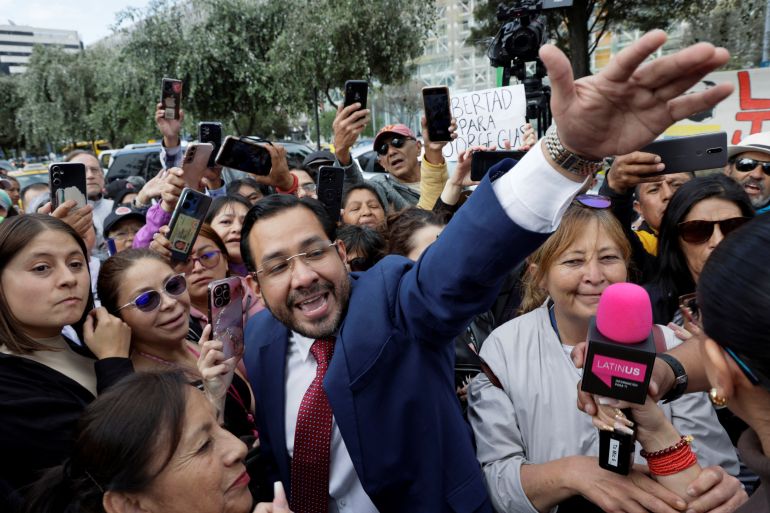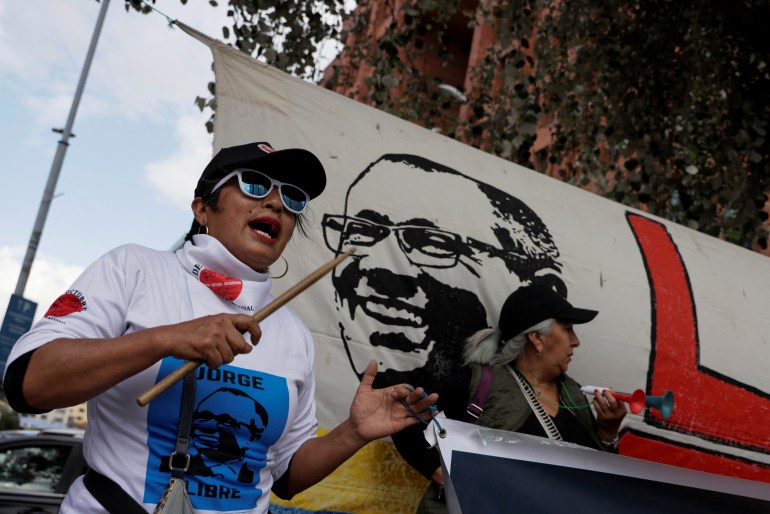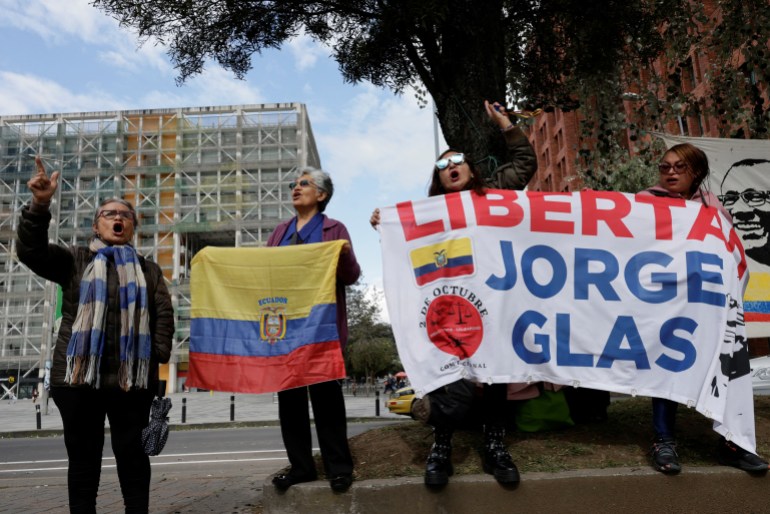Ecuadorian tribunal deems arrest of former Vice President Glas illegal
But the three-member panel also upheld his ongoing imprisonment, arguing it could not ‘modify’ his sentence.

The defence team for former Ecuadorian Vice President Jorge Glas has hailed a decision declaring his arrest inside Mexico’s embassy in Quito illegal.
Still, on Friday, lawyer Sonia Vera Garcia pledged to appeal the ruling, which upheld her client’s continued detention.
Keep reading
list of 3 itemsMexico releases footage of Ecuador police storming its embassy in Quito
Mexico cuts ties with Ecuador after police raid embassy
“We thank the international community,” she wrote on the social media platform X. “Its support led to the detention being declared arbitrary, a step forward.”
“However, Jorge remains detained. We will appeal until we achieve his freedom.”
The ruling comes after Francisco Hidalgo — a member of Glas’s left-wing political party, Citizen Revolution — submitted a writ of habeas corpus earlier this week on the former vice president’s behalf, arguing he had been unlawfully detained.

Glas’s arrest had been the subject of ongoing international tensions. On April 5, Ecuadorian police stormed the Mexican embassy, scaling its fence and pointing a gun at a top diplomat who sought to bar their entrance.
In its ruling on Friday, a three-member tribunal in Ecuador found that the arrest on embassy grounds had indeed been “illegal and arbitrary”.
Judge Monica Heredia wrote that “without authorisation from the head of the Foreign Ministry and political affairs at the Mexican embassy in Ecuador, the detention became illegal”.
International law protects embassies and consulates from the interference of local law enforcement. This “rule of inviolability” theoretically allows diplomats to conduct sensitive work without fear of reprisal from their host country.
But embattled public figures like Glas have also turned to embassies to seek temporary refuge from arrest, knowing that local police are not supposed to enter without permission.
Glas was twice convicted on corruption-related charges. He was sentenced to six years in prison in 2017 and eight years in 2020.
In the hours before his arrest, Mexico’s Foreign Ministry announced it had granted political asylum to Glas, who had been sheltering in its embassy in Quito since December.

But the embassy raid ignited a full-blown spat between Mexico and Ecuador.
In its wake, Mexico severed diplomatic ties and recalled its embassy staff from Ecuador. Countries around Latin America, as well as the Organization of American States (OAS), have also denounced the police raid.
But the government of Ecuadorian President Daniel Noboa has sought to defend the raid as authorised by executive decree.
In addition, it argued that Glas should not be eligible for political asylum, as his convictions were not the result of persecution.
But the three-member tribunal on Friday said the government’s defence of the raid “lacks legal basis”.
Still, while the tribunal ruled that the arrest itself was illegal, it decided Glas should remain behind bars, given his prior convictions.
“This tribunal cannot modify the sentence,” Judge Heredia said.
Glas is currently serving his prison term in Guayaquil, where he is conducting a hunger strike in protest. He was hospitalised earlier this week.
On Thursday, Mexico filed a complaint with the International Court of Justice to expel Ecuador from the United Nations over the embassy raid — at least until the country delivers a formal apology for its violations of international law.